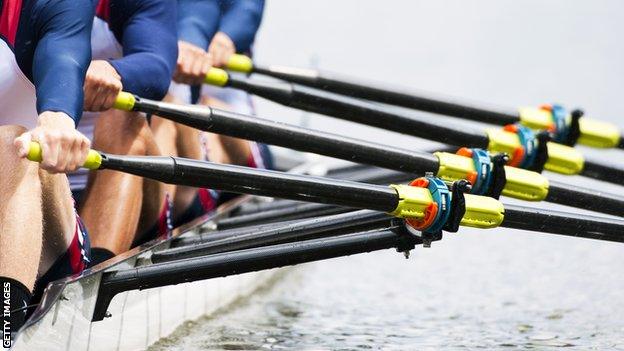British Rowing: Governing body chair calls for 'open' category for trans athletes
- Published

The chair of British Rowing has called on the sport's world governing body to create an "open" category for transgender athletes.
World Rowing currently allows an athlete who was male at birth to compete in the female category if their testosterone is below a certain level.
World swimming's governing body Fina established an open category in June.
Mark Davies said he had asked World Rowing if it would "consider following Fina's lead".
British Rowing has recently updated its policy for transgender athletes in line with World Rowing's guidance, but Davies said he "shared concerns" the rules as they stand are a "threat to hard-fought-for progress" in women's sport.
Most sports federations allow transgender women to compete in the female category if they reduce their testosterone for 12 months.
Research has suggested, external transgender women retain significant cardiovascular and strength advantages compared to female athletes, even after taking testosterone‑suppressing hormones for more than a decade.
Critics of transgender athletes' participation in some women's sports argue that gives them a disproportionate advantage to their peers and limits opportunities for women.
However, some argue there is not enough detailed research - and that sport should be more inclusive, with open categories criticised for being discriminatory.
"World Rowing is less protective of women's sport than some other international federations such as Fina, which has adopted a policy of having open and women's categories," Davies told the World Rowing Congress.
"Open is for anyone who went through male puberty - recognising that limiting testosterone levels fails to counteract the lasting impact of that."
Earlier this year, triathlon became the first British sport to establish a new 'open' category in which transgender athletes will compete.